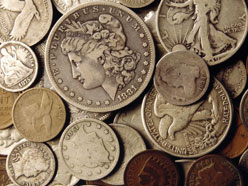
More than half of Canada’s wealthy participate in hobby investing, says a report from BMO.
Hobby investing is “adding collectible assets to portfolios as a means of diversification and, just as important, as a way to have and to hold the things [clients] love the most.”
Read: How to differentiate yourself
Popular hobby investments include:
- Coins (22%)
- Art (21%)
- Antiques (20)
- Stamps (11%)
- Wine (10%)
- Classic cars (7%)
- Sports memorabilia (6%)
“Clients who do engage in hobby investing tend to have up to 20% of their assets tied up in them,” says Richard Mason, head of investment management at BMO Harris Private Banking. “It allows them to be able to pass on to their heirs something that reflects their personality and interests, thereby creating a legacy.”
Read: 6 tips for estate planning success
While 49% of respondents claimed they invest in hobbies because it’s fun, other factors include:
- Combining interests with investing (44%)
- Providing something unique to pass on to family (26%)
- Providing sound investments that will appreciate in value (23%)
- Enabling the client to show off investments to others (20%)
However, Mason says there are cautions that hobby investors need to keep in mind.
Read: Are your clients as wealthy as they claim?
For instance, antiques can be illiquid and therefore aren’t suitable for clients who may need to convert them into cash quickly. Also, wine and art collecting are long-term investments, so they may not be appropriate for people with short-term goals.
And, there is a large counterfeit market in stamps and coins, so investors in these markets would need to guarantee authenticity and be aware of the risks.